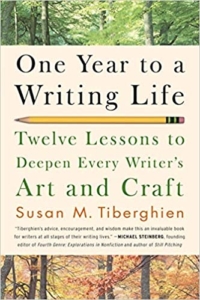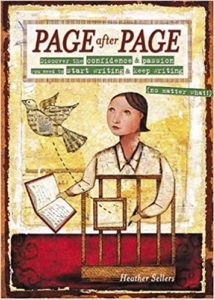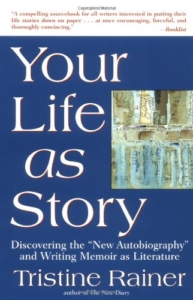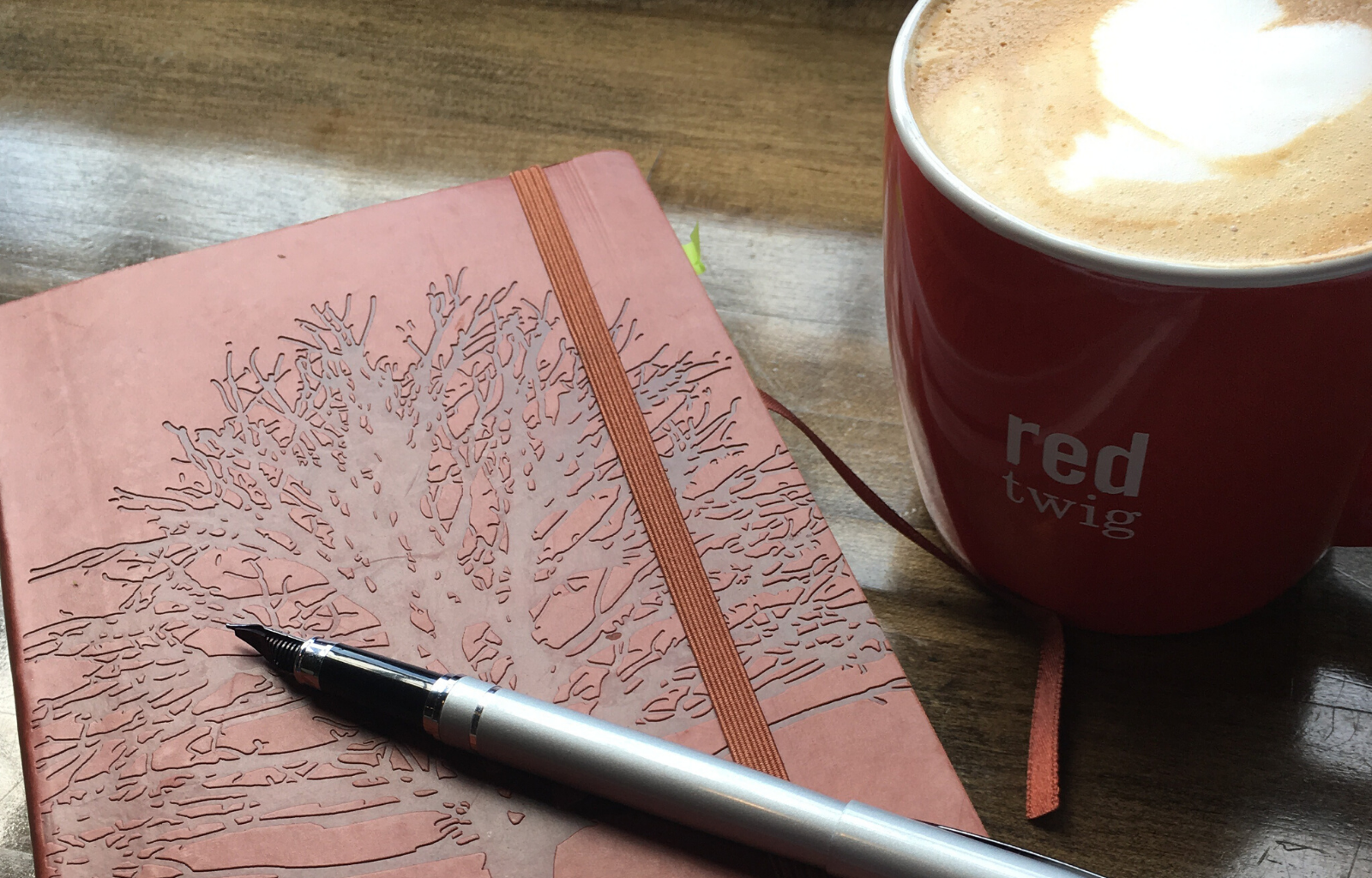A Little Something to Get You Writing
 One of my daughters is moving home temporarily, and cleaning out the bottom story of our house — which includes a mother-in-law kitchen we’ve never really used — has necessitated another attempt to reduce the amount of paper I’ve stored in bins and boxes. I threw away a bunch of old literature assignments, and I found a notebook I kept when Writing Lab was first launched.
One of my daughters is moving home temporarily, and cleaning out the bottom story of our house — which includes a mother-in-law kitchen we’ve never really used — has necessitated another attempt to reduce the amount of paper I’ve stored in bins and boxes. I threw away a bunch of old literature assignments, and I found a notebook I kept when Writing Lab was first launched.
Our writing group has a couple of new or newish members, so I thought I’d replicate the first meeting, at which several of us (including me) did not yet have our textbook, Susan Tiberghien‘s One Year to a Writing Life: Twelve Lessons to Deepen Every Writer’s Art and Craft (Marlowe & Company, 2007).
Our first exercise that day was from Heather Sellers’s Page after Page:
- IN ALL CAPITAL LETTERS, LIST 10 THINGS YOU DID YESTERDAY.

- IN ALL CAPITAL LETTERS (that’s Sellers’s dictum; it’s okay with me if you switch to cursive at this point), WRITE FOR 10 MINUTES (set a timer!) ABOUT ONE ITEM ON YOUR LIST.
- We then talked about what it felt like to write in all caps, and agreed that writing in caps slowed us down, and felt a little like drawing the letters. We had to think more, and some people felt frustrated by that. (Note, years later, I did this exercise with a class that included a couple of engineers — they said they always wrote in all caps, and didn’t get the point of it at all.)
- Obviously, you can keep at this, tackling each item on the list by turn, or letting one insight or detail from the first free write lead you to a new exploration.
The next exercise was from Tristine Rainer’s Your Life as Story:
- On the left hand side of a blank page, write the numbers 1-30 (all the way down the side).
- Beside number 1, write I AM BORN.
- Now fill in the title chapters for the rest of your life story.
- After doing this…though we ran out of time and talked about it instead…the next step is to choose one chapter and break it into 30 more chapters — or, failing that — people-places-things that the chapter could, conceivably, include.
 (I wish I could recover all the nuances of our conversation about this exercise — it was rich!)
(I wish I could recover all the nuances of our conversation about this exercise — it was rich!)
I recommended typing up the exercises to prod them into becoming something more (always works for me). Before adjourning, we agreed to meet weekly, and I asked everyone to read Tiberghien’s first chapter, “Journal Writing,” for the following week.
“In the degree that we remember and retell our stories and create new ones we become the authors, the authorities of our own lives.” –Sam Keen








 This fall I am taking time off from teaching my regular load of classes. I am training myself to avoid saying, “I’m not working.” I am working. I’m getting up every morning and writing…except when I’m on my way to Chehalis (so far, every week) to see my mother, or to attend a conference. I am working –feverishly — on the unassailable rewrite of my novel. Encouraged by the three days at LitFuse, a total immersion in poetry, I’m also working on a new, long poem.
This fall I am taking time off from teaching my regular load of classes. I am training myself to avoid saying, “I’m not working.” I am working. I’m getting up every morning and writing…except when I’m on my way to Chehalis (so far, every week) to see my mother, or to attend a conference. I am working –feverishly — on the unassailable rewrite of my novel. Encouraged by the three days at LitFuse, a total immersion in poetry, I’m also working on a new, long poem.